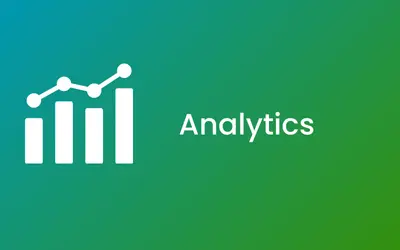Pittsburgh, Pennsylvania, is home to some of the finest educational institutions in the United States. Among them, the Carnegie Mellon University (CMU) stands out for its excellence in technical education and research. The university offers a variety of programs in the field of data analytics, which have gained immense popularity in recent years. The Master of Information Systems Management (MISM) program offered by CMU's Heinz College is one of the top-ranked programs in the country. It is designed to equip students with the knowledge and skills required to manage complex data systems and make informed decisions using analytical tools. The course covers a broad range of topics, including statistical analysis, data mining, database management, and machine learning. The curriculum is flexible and can be customized to suit the student's interests and career goals. The MISM program is highly industry-focused, and students have ample opportunities to gain practical experience through internships, capstone projects, and research collaborations. CMU has partnership agreements with over 650 companies worldwide, providing students with access to a vast network of employers. Students are also able to participate in hackathons, conferences, and workshops organized by the university to get hands-on experience in real-world applications of data analytics. Apart from the MISM program, CMU also offers a variety of other graduate-level courses in data analytics. The Master of Science in Information Technology program, for example, includes specialized tracks in business intelligence and data analytics. The program focuses on developing students' expertise in data warehousing, data mining, and predictive analytics, among other areas. Another exciting course offered by CMU is the Master of Science in Computational Data Science. The program is designed for students who wish to specialize in the emerging field of big data analytics. The curriculum includes courses such as machine learning, data visualization, and parallel computing. Students are also required to complete a capstone project in which they work on a real-world data science problem. Apart from CMU, Pittsburgh is home to other reputable institutions offering courses in data analytics. The University of Pittsburgh, for example, offers a Master of Science in Information Science program with a specialization in data management. The program is ideal for students interested in pursuing a career in data analytics or data management. It covers topics such as data warehousing, data mining, and database management, among others. In conclusion, studying data analytics in Pittsburgh is an excellent choice for students who seek to pursue a career in this exciting field. The region has a robust and growing tech ecosystem that provides ample opportunities for graduates to secure jobs in various industries. With world-class educational institutions such as CMU and the University of Pittsburgh offering cutting-edge courses in data analytics, Pittsburgh is an excellent destination for students seeking to acquire the skills and knowledge needed to succeed in the data-driven world.

₹60,000


Watch how students, freshers, and professionals transformed their careers with Skillfloor's Analytics Courses Reviews
Hurry Up!
Limited seats call us now for amazing discounts on Analytics Courses course



Skillfloor is a Government-Recognized Skill Development Institute under Startup India (DPIIT), offering career-focused certification programs in Analytics, Artificial Intelligence (AI), Data Science, Digital Marketing, SEO, and related domains. As one of India's largest training institutes, our courses emphasize hands-on projects, expert mentorship, and skills aligned with real hiring needs. With flexible learning options - online, offline, and hybrid, plus 100% scholarships for selective students, we make quality, job-ready education accessible.
Explore the program that aligns with your goals and take the next step with Skillfloor.



- Overview of data analysis and its importance in business
- Types of analytics: Descriptive, Predictive, Prescriptive
- Role of data in decision-making processes
- Introduction to common tools: Tableau, PowerBI, Excel
- Ethical considerations in data collection and analysis
- Data sources: Primary and secondary data
- Data collection methods (surveys, web scraping, databases)
- Data cleaning techniques (handling missing values, outliers)
- Data transformation and feature engineering
- Data storage concepts (structured vs. unstructured data)
- Descriptive statistics: Mean, median, mode
- Data visualization basics (histograms, scatter plots)
- Identifying data patterns and trends
- Outlier detection and handling methods
- Correlation and causation analysis
- Inferential statistics and probability theory
- Hypothesis testing (t-tests, chi-square tests, ANOVA)
- Measures of central tendency and variability
- Confidence intervals and margin of error
- Regression analysis: Linear and logistic regression
- Principles of effective data visualization
- Types of charts and their uses (bar, line, pie, heatmaps)
- Designing dashboards for different audiences
- Interactive visualization techniques
- Data storytelling for impactful presentations
- Time series analysis and forecasting methods
- Clustering and segmentation analysis
- Decision trees and classification techniques
- Introduction to machine learning in business analytics
- Model evaluation and selection
- Basics of SQL for data manipulation
- Creating databases and relationships
- Aggregating data with SQL (GROUP BY, JOIN)
- Data modeling for business intelligence (star and snowflake schemas)
- Case study: Building a business model with SQL
- Connecting and preparing data in Tableau
- Creating basic visualizations (charts, maps)
- Advanced Tableau functions (LOD calculations, table calculations)
- Building interactive dashboards and stories
- Publishing and sharing visualizations on Tableau Server/Online
- Introduction to PowerBI workspace and components
- Data import and transformation with Power Query
- Data modeling and relationships in PowerBI
- Creating and customizing visualizations
- Publishing and collaborating on PowerBI Service
- Selecting a real-world dataset for analysis
- Defining business questions and objectives
- Conducting data analysis and visualization
- Presenting findings in a comprehensive dashboard
- Peer review and feedback on project